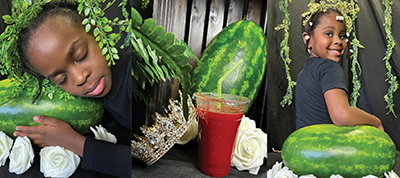By Brandie Gray
Every year as fall approaches we are either intentionally or subconsciously reminded of the harvest. From being bombarded with pumpkin spice flavored coffees, cookies, and cakes to fall festivals and pumpkin patches or even jack-o-lantern decorations there is no argument that the pumpkin is hailed as the fruit of the season! And I know what you’re thinking… “FRUIT???” Yes, you read that right. Pumpkin is a FRUIT! Many people believe that it is a vegetable; however, all members of the squash family are fruit. Vegetables are the edible portion of plants such as leaves, stems, roots, bulbs, flowers, and tubers. Because pumpkins are a product of the seed-bearing structure of a flowering plant; they are classified by botanists as fruit. Considering the popularity of the pumpkin during this time it is hard to separate the thought of it from cornucopias, Pilgrims, Native Americans & “The First Harvest”. The pumpkin’s identity and connection to a particular person and time of year vehemently remind me of another fruit that hosts an identity that unfortunately boasts a much more negative connotation, the watermelon.
The watermelon originating over 5000 years ago in southern Africa as a small bitter fruit was selectively bred and eventually referred to by writer Mark Twain as “The fruit that angels eat”. Making its way across the globe for centuries; there are now over 1,000 varieties. Although the circumstances required for watermelon to grow abundantly occur mostly in the summer months; the importation and exportation of the amazingly delicious fruit makes it possible for us to enjoy it year-round. Not only does watermelon taste good but it is rich in nutritional value and can lower your blood pressure and reduce the risk of heart attacks. Based on these things one would think that watermelon would be a fruit that one could easily enjoy & love. Unfortunately for Black Americans this is not often the case.
In the 1860s after the Civil War and the execution of the Emancipation Proclamation Black farmers took what little they had or could scrape up and seized their newfound “freedom” by growing & farming watermelon. They did the work to pull themselves up by their proverbial “bootstraps” and in many cases became very successful thanks to this fruit. The growing of watermelon as a cash crop on their own land had become a symbol of economic self-sufficiency and liberation for formerly enslaved Africans. But then; the hating started…. Or rather CONTINUED!
As the Black community strived to make a way for itself southern whites saw this emergence of entrepreneurship as a threat to their perceived dominance. They were resentful of the people, once their property making headway in the field of agriculture. As a result, more than a century-long propaganda campaign was initiated to disparage and undermine the Black farmers’ hard work and commitment to growing watermelons. In 1869 Frank Leslie’s Illustrated Newspaper, a popular editorial during its time, is believed to be one of the first to print an image depicting Black people dealing in watermelon. The article that accompanied the photo referred to the newly freed Africans as juvenile and suggested that the group possessed an insatiable desire for watermelon. Blacks continued to be represented this way in both print and live ministerial shows throughout the south. Images of people fighting over and stealing watermelons printed on postcards were used to dehumanize a group of people. The trope of the lazy, simple-minded negro scarfing down watermelon and spit-firing watermelon seeds was so pervasive that many Black performers began to perform songs and star in shows that perpetuated the stereotype.
The negative implications of this racist history of the watermelon continues to affect Black Americans today, causing the population to shy away from the fruit to avoid being viewed as lazy, stupid, and incompetent. The suggestion of a watermelon eating contest or the idea of being photographed with this beautiful melon is considered a faux pas and cliche. However, the students of the Village Academy are setting out to shift this view. With bold photography and by sharing the origin, history, and benefits of watermelon we hope to adjust its branding thus making it easy to enjoy watermelon devoid of negative stigmas as it is to enjoy pumpkin spice everything in the fall. When you bite into the juicy fruit, we don’t want our community to feel ashamed but rather healthy, nourished, and proud.
Follow @VillageAcademyFL on Instagram for more information.
